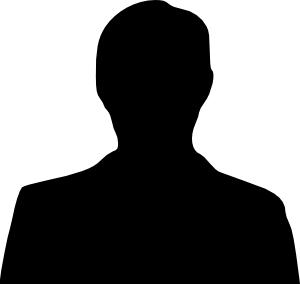Constitution is at the intersection of the legal system, the political system and the society in the country. It is the supreme law of the land. Foundation of legal system: rights and duties are derived from it. Rule of law is based upon it. Political system in the form of institutions of governance and their relationships are expressed. Shared values, vision of the country, and aspirations of people including socio economic rights, cultural or linguistic policy or education are reflected in the Constitution.
At the Constitutional Loya Jirga held at Kabul from 13 December 2003 to 4 January 2004, more than 500 delegates representing the people of Afghanistan agreed upon the draft constitution, ‘The Constitution of the Islamic Republic of Afghanistan’ which was ratified on 26 January 2004. It consists of 162 articles in 12 chapters. It transformed the county into ‘an Islamic Republic, independent, unitary and indivisible state’. Now it is a multi ethnic Islamic modern state: a democratic state with presidential form of governance following the constitutionalism through institutional and functional structures and the constitutionalism is now the political philosophy in the country.
In a discussion with Upendra Baghel, a research scholar on Afghanistan and regional security, he says that the constitutionalism is not a new phenomenon in the country. Its roots go back to at least to 1922, when the first constitution was adopted. After it, there were four more constitutions adopted in 1931, 1964, 1976, and 1987, respectively and now in the year 2004, it is the sixth one. These constitutions had some provisions keeping pace at par with the constitutional developments at that time. With the change in political power at the helm of affairs, the king, the monarch, and the republic chose to adopt the new constitution setting aside the previous ones, without adapting and harmonizing. Powers largely remained concentrated with head of the regime. With the new constitution, the political and legal system invigorated but limited to urban areas and political elites. The people in the hills and valleys remained same with the continuation of social and cultural values at subnational level, especially at the family, community and ‘qarya’ levels. Instead of instilling changes abruptly, these values change incrementally and there is cumulative effect of history on them, including effects of the Taliban regime of 1990s and Buddhism of ancient period. Some of the values are universal cutting across all the communities, such as right to life and quest for peace, justice, safety and security.
Repeated changes of the constitution affect the continuity, governance and institution building and alienate the people from the government. The trust deficit between the people and the government swings the people to rely upon informal, family and community network more for their needs. It affects the social order in the country. Stable democracies do not change the constitutions, but amend them to incorporate new realities and maintain continuity. It assists them to maintain social order, which is the main purpose of a Government and in the absence of that, there would be chaos, insecurity and mistrust in the government.
Upendra referred to constitutionalism in other countries. US Constitution started operational on March 4, 1789. UK does not have a codified written Constitution and relies on legislations, court judgments, conventions and works of authority with the supremacy, since 1688, to parliamentary sovereignty. The Constitution of India was adopted on 26 January 1950. It maintained the continuity with social order and institutional orders through adaptation, modification, addition or omission, and also repeal of the Government of India Act 1935 and Indian Independence Act 1947.
For Thomas Jefferson, one of the Founding Fathers of the US and 3rd US President ‘the constitution of the United States is the result of the collected wisdom of our country’, the Afghanistan constitution is the collective wisdom of Afghans and it needs to be protected and preserved. The collective wisdom and Afghan social values and culture have not changed in the last 14 years and these would remain same even if the Taliban joins the political landscape of the country.
The intra-Afghan dialogue would focus on political settlement and it would be an opportunity for Afghan leaders to deliberate upon many aspects of political, legal and governance system of the present architecture of state governance including the Constitution. This is the opportunity to introspect, interact with people and learn from the past. Afghanistan has an experience of 14 years in 21st century constitutionalism.
The first meeting between Afghan delegation consisting of 40 political leaders sans the Afghan Government representatives and ten members Taliban delegation was held on 5th – 6th February 2019 in Moscow. Former President Hamid Karzai led the Afghan delegation. They held comprehensive talks. After the talks, Stanikzai, the head of the Taliban delegation said the meetings had been “very successful’ and ‘…finally we can reach a solution, we can find a complete peace in Afghanistan’. Karzai also expressed similar sentiments. Now the second such talk is expected to be in Doha on 14th April 2019 and Karzai would chair it.
The Afghan government and the Taliban are too divergent in their political philosophies and governance models. The real challenge will be to negotiate a common path on convergences to usher the country towards peace, security and development. During the Taliban regime of 1995 – 2001, their governance was rudimentary and fundamentalist. It was a Pashtun dominated government. They had direct control over urban areas and major roads and left rural areas for the local leaders to control. They made efforts to impose a strict interpretation of Sharia across the country. Ministers and deputies were mullahs with madarasa education. The decision makers avoided talking to non-muslim foreigners. Employment of women was forbidden except in few areas. Girl education was restricted. Women were ordered to be in ‘burqa’, not to travel alone and always accompanied by a ‘marham’ or a blood relative. All senior non-Pashtun officials were replaced. General elections are incompatible with ‘Sharia’ and therefore they did not believe in political parties and elections. It was a fundamental Islamic theological state where Mullah Omar, as Amir al Mu’minin was the highest authority, not the head of state and all decisions were based on his advise. Some of the aspects of this are again reflected when Stanekzai used a caveat and said, ‘the sovereignty and establishment of an Islamic system conforming to our religious and Afghan values is our legal right, and our armed and political efforts are for this exact purpose.’
Intra-Afghan dialogue should bring common ethos and collective wisdom of Afghan people to the forefront. Upendra is of the view that if the dialogue agenda is centered on Afghan people, then this citizen-centered approach will avoid the talks drifting towards the state machinations and nuances of political power dynamics. Afghan government, as the legitimate representative of the people, might have to take a lead to steer the ‘people centered’ agenda and to rally other political actors on this. Only then, the peace agreement will come out in the interest of the people, having their agenda on the top aligning political and legal system as constitutional tools to achieve peace and security in the country.
Writer is Mohammed Gul SAHIBBZADA, who is Chief Executive Officer for
Kainaat Group of Companies (KGC)
 Afghanistan Times
Afghanistan Times




